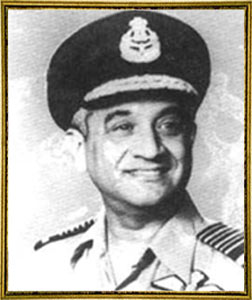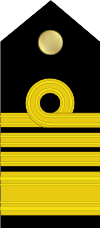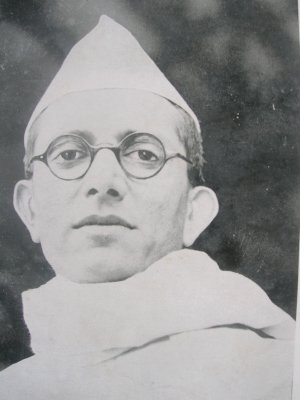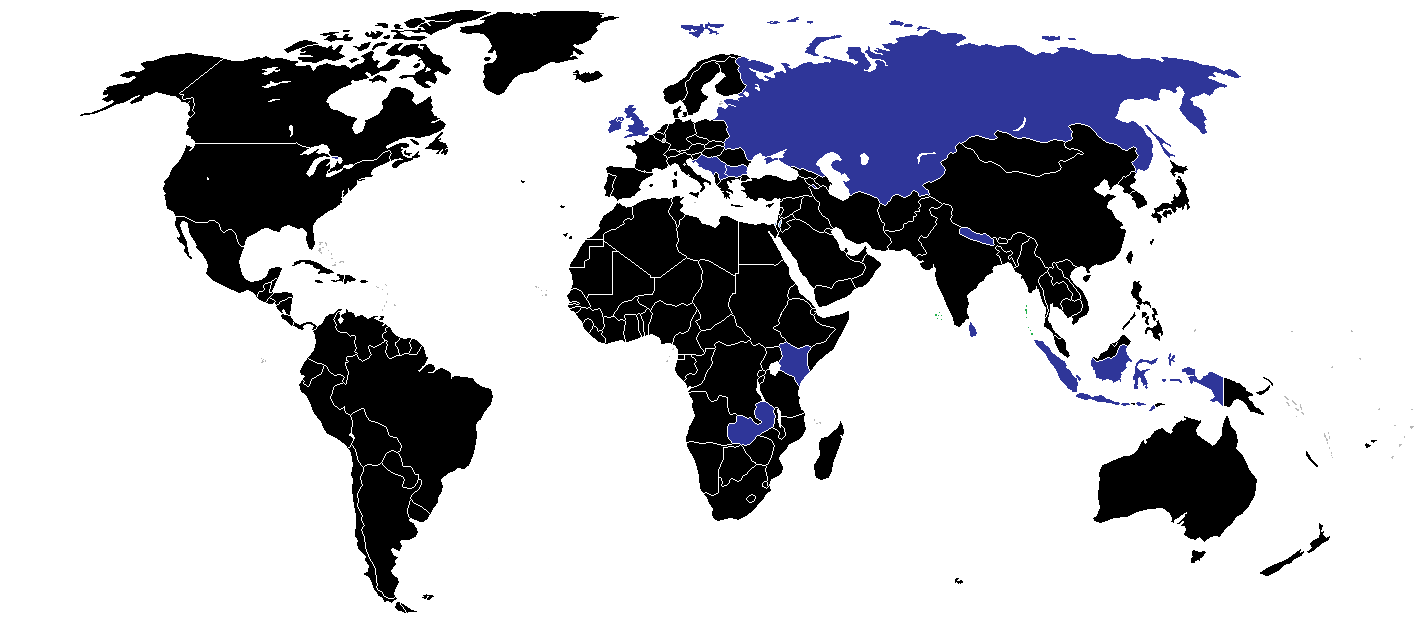|
Om Prakash Malhotra
General Om Prakash Malhotra, (6 August 1922 – 29 December 2015), best known as OP Malhotra, was a senior army officer in the Indian Army who served as the 10th Chief of Army Staff of the Indian Army from 19781981. Upon retiring from his military service in India, he served in the Indian Foreign Service when he tenured as the Indian Ambassador to Indonesia 1981-1984, and later served as a political administrator in India as the Governor of Punjab and Administrator of Chandigarh 1990-1991. Early life Om Prakash Malhotra was born on 6 August 1922 in Srinagar, Jammu and Kashmir, British India, into a Punjabi Hindu Khatri family of the Malhotra clan, within the Dhai Ghar family-group. Malhotra received his schooling first at Model High School, Srinagar, and then at Sri Pratap College, Srinagar. He then attended Government College University, Lahore, before being selected to join the Indian Military Academy (IMA), Dera Doon. Military career He was commissioned into the ... [...More Info...] [...Related Items...] OR: [Wikipedia] [Google] [Baidu] |
General (India)
General is a four-star general officer rank in the Indian Army. It is the highest active rank in the Indian Army. General ranks above the three-star rank of lieutenant general and below the five-star rank of field marshal, which is largely a war-time or ceremonial rank. A general may be referred to as a full general or four-star general to distinguish them from lower general officer ranks like lieutenant general and major general. The equivalent rank in the Indian Navy is admiral and in the Indian Air Force is air chief marshal. As of 2022, there are two serving full generals in the Indian Armed Forces, General Anil Chauhan, the Chief of Defence Staff and Chairman, Chiefs of Staff Committee, and General Manoj Pandey, the Chief of the Army Staff. History The first Indian to hold the rank of full general was K. M. Cariappa. He was promoted to the acting rank of General when he took over as the Commander-in-Chief of the Indian Army on 15 January 1949. All the chiefs of the In ... [...More Info...] [...Related Items...] OR: [Wikipedia] [Google] [Baidu] |
President's Rule
In India, President's rule is the suspension of state government and imposition of direct Union government rule in a state. Under Article 356 of the Constitution of India, if a state government is unable to function according to Constitutional provisions, the Union government can take direct control of the state machinery. Subsequently, executive authority is exercised through the centrally appointed governor, who has the authority to appoint other administrators to assist them. The administrators are usually nonpartisan retired civil servants. When a state government is functioning correctly, it is run by an elected Council of Ministers responsible to the state's legislative assembly (Vidhan Sabha). The council is led by the chief minister, who is the chief executive of the state; the Governor is only a constitutional head. However, during President's rule, the Council of Ministers is dissolved, vacating the office of Chief Minister. Furthermore, the Vidhan Sabha is either pror ... [...More Info...] [...Related Items...] OR: [Wikipedia] [Google] [Baidu] |
Chief Of The Army Staff (India)
The Chief of the Army Staff (COAS) (unofficially known as the Army Chief) is a statutory position in the Indian Army held usually by a four star general. As the highest ranking officer to serve solely in the Indian Army, the chief is the professional head of the ground forces and a key adviser to the Minister of Defence. The COAS, in a separate capacity, is also a member of the National Security Council and thereby an advisor to the president and the prime minister. The COAS is typically the most senior army officer in the Indian Armed Forces, unless the Chief of Defence Staff and/or the Chairman Chiefs of Staff Committee is an army officer. Office of the Chief of the Army Staff The post of Commander-in-Chief, India was established in 1748 to designate the commander of all forces of East India Company. After 1857 , the Commander-in-Chief become the supreme commander of the British Indian Army. The C-in-C was also the overall head of the armed forces of the British India inc ... [...More Info...] [...Related Items...] OR: [Wikipedia] [Google] [Baidu] |
Idris Hasan Latif
Air Chief Marshal (India), Air Chief Marshal Idris Hasan Latif, Param Vishist Seva Medal, PVSM (9 June 1923 – 30 April 2018) was a former air officer in the Indian Air Force. He served as the Chief of Air Staff (India), 10th Chief of Air Staff (CAS) of the Indian Air Force (IAF) from 1978 to 1981. After retiring from the air force, he served as List of governors of Maharashtra, 11th Governor of Maharashtra from 1982 to 1985. Born in an affluent family in Hyderabad, he joined the Indian Air Force Volunteer Reserve (IAFVR) during World War II. After joining the Coastal Flight at Karachi, he spent a year in the United Kingdom with the Royal Air Force. As part of the No. 3 Squadron IAF, he served in the Burma campaign. After the partition of India, he chose to stay with the IAF. He commanded the No. 4 Squadron IAF and led the squadron in the fly-past during the first Republic Day parade in 1950. He commanded a squadron at the Joint Services Wing, the precursor to the National Defen ... [...More Info...] [...Related Items...] OR: [Wikipedia] [Google] [Baidu] |
Jal Cursetji
Admiral Jal Cursetji, PVSM (20 May 1919 – 29 January 1991) was a former Flag Officer in the Indian Navy. He served as the ninth Chief of the Naval Staff (CNS) from 1 March 1976 until 28 February 1979. He was the first hydrographer to serve as the CNS. Born in a Parsi family in Jabalpur, Cursetji joined the Training Ship Dufferin in 1935, where his batchmate was Nilakanta Krishnan. After training on various ships of the Royal Navy, he served on the Aubrietia-class sloop and the Bathurst-class corvette . In 1944, he commanded ''HMIS Bombay''. After specialising in hydrography in the United Kingdom, he was tasked with the planning of setting up a hydrographic office in India. He served as the Surveyor-in-Charge, Marine Survey of India and commanded the survey ship INS Investigator. He was the first Indian to serve as the Chief Hydrographer of the Navy, from 1955 to 1957. Cursetji subsequently commanded the 11th destroyer squadron and the lead ship and served for about four ... [...More Info...] [...Related Items...] OR: [Wikipedia] [Google] [Baidu] |
Indira Gandhi
Indira Priyadarshini Gandhi (; Given name, ''née'' Nehru; 19 November 1917 – 31 October 1984) was an Indian politician and a central figure of the Indian National Congress. She was elected as third prime minister of India in 1966 and was also the first and, to date, only female prime minister of India. Gandhi was the daughter of Jawaharlal Nehru, the first prime minister of India. She served as prime minister from January 1966 to March 1977 and again from January 1980 until Assassination of Indira Gandhi, her assassination in October 1984, making her the second longest-serving Indian prime minister after her father. During Nehru's premiership from 1947 to 1964, Gandhi was considered a key assistant and accompanied him on his numerous foreign trips. She was elected president of the Indian National Congress in 1959. Upon her father's death in 1964, she was appointed as a member of the Rajya Sabha (upper house) and became a member of Lal Bahadur Shastri ministry, Lal ... [...More Info...] [...Related Items...] OR: [Wikipedia] [Google] [Baidu] |
Charan Singh
Chaudhary Charan Singh (23 December 1902 – 29 May 1987) served as the 5th Prime Minister of India between 28 July 1979 to 14 January 1980. Historians and people alike frequently refer to him as the 'champion of India's peasants.' Charan Singh was born on 23 December 1902 in a rural peasant Hindu Jat family of the Teotia clan of village Noorpur, United Provinces of Agra and Oudh. Charan Singh entered politics as part of the Indian Independence Movement motivated by Mahatma Gandhi. He was active from 1931 in the Ghaziabad District Arya Samaj as well as the Meerut District Indian National Congress for which he was jailed twice by the British. Before independence, as a member of Legislative Assembly of the United Provinces elected in 1937, he took a deep interest in the laws that were detrimental to the village economy and he slowly built his ideological and practical stand against the exploitation of tillers of the land by landlords. Between 1952 to 1967, he was one of "thre ... [...More Info...] [...Related Items...] OR: [Wikipedia] [Google] [Baidu] |
Morarji Desai
Morarji Ranchhodji Desai (29 February 1896 – 10 April 1995) was an Indian independence activist and politician who served as the 4th Prime Minister of India between 1977 to 1979 leading the government formed by the Janata Party. During his long career in politics, he held many important posts in government such as Chief Minister of Bombay State, Home Minister, Finance Minister and 2nd Deputy Prime Minister of India. Following the death of Prime Minister Lal Bahadur Shastri, Desai was a strong contender for the position of Prime Minister, only to be defeated by Indira Gandhi in 1966. He was appointed as Deputy Prime Minister (as Minister of Finance) in Indira Gandhi's cabinet, until 1969. When Indian National Congress split in 1969 he became a part of the INC (O). After the controversial emergency was lifted in 1977, the political parties of the opposition fought together against the Congress (I), under the umbrella of the Janata Party, and won the 1977 election. Desai w ... [...More Info...] [...Related Items...] OR: [Wikipedia] [Google] [Baidu] |
Neelam Sanjiva Reddy
Neelam Sanjiva Reddy (; 19 May 1913 – 1 June 1996) was an Indian politician who served as the sixth President of India, serving from 1977 to 1982. Beginning a long political career with the Indian National Congress Party in the independence movement, he went on to hold several key offices in independent India — as Deputy Chief minister of Andhra state and the first Chief Minister of United Andhra Pradesh, a two-time Speaker of the Lok Sabha and a Union Minister— before becoming the Indian president. Born in present-day Anantapur district, Andhra Pradesh, Reddy completed his schooling at Adayar and joined the Government Arts College at Anantapur. He quit to become an Indian independence activist and was jailed for participating in the Quit India Movement. He was elected to the Madras Legislative Assembly in 1946 as a Congress party representative. Reddy became the deputy chief minister of Andhra State in 1953 and the first Chief Minister of Andhra Pradesh in 1956. He wa ... [...More Info...] [...Related Items...] OR: [Wikipedia] [Google] [Baidu] |
Chairman Of The Chiefs Of Staff Committee
The Chairman, Chiefs of Staff Committee (Chairman COSC) is a position in the Indian Armed Forces, usually held by a four-star officer serving as the Chief of Defence Staff (CDS) of the Indian military. The position holder chairs the Chiefs of Staff Committee, and serves as the principal adviser to the prime minister and Minister of Defence. The position is not a statutory office but rather a title held by the senior most serving military officer of India. Until 2020, the chairmanship of the COSC was held in rotation by the senior-most service chief until his retirement, but this arrangement was found to be unsatisfactory. Thus, when the post of the CDS was established, its holder was also made the permanent Chairman COSC. In the absence of the CDS, a temporary Chairman Chiefs of Staff Committee may be appointed. On 15 December 2021, after the demise of General Bipin Rawat, the then Chief of Defence Staff on 8 December in a plane crash, General Manoj Mukund Naravane was appoint ... [...More Info...] [...Related Items...] OR: [Wikipedia] [Google] [Baidu] |
Indonesia
Indonesia, officially the Republic of Indonesia, is a country in Southeast Asia and Oceania between the Indian and Pacific oceans. It consists of over 17,000 islands, including Sumatra, Java, Sulawesi, and parts of Borneo and New Guinea. Indonesia is the world's largest archipelagic state and the 14th-largest country by area, at . With over 275 million people, Indonesia is the world's fourth-most populous country and the most populous Muslim-majority country. Java, the world's most populous island, is home to more than half of the country's population. Indonesia is a presidential republic with an elected legislature. It has 38 provinces, of which nine have special status. The country's capital, Jakarta, is the world's second-most populous urban area. Indonesia shares land borders with Papua New Guinea, East Timor, and the eastern part of Malaysia, as well as maritime borders with Singapore, Vietnam, Thailand, the Philippines, Australia, Palau, and India ... [...More Info...] [...Related Items...] OR: [Wikipedia] [Google] [Baidu] |
Ambassador
An ambassador is an official envoy, especially a high-ranking diplomat who represents a state and is usually accredited to another sovereign state or to an international organization as the resident representative of their own government or sovereign or appointed for a special and often temporary diplomatic assignment. The word is also used informally for people who are known, without national appointment, to represent certain professions, activities, and fields of endeavor, such as sales. An ambassador is the ranking government representative stationed in a foreign capital or country. The host country typically allows the ambassador control of specific territory called an embassy, whose territory, staff, and vehicles are generally afforded diplomatic immunity in the host country. Under the Vienna Convention on Diplomatic Relations, an ambassador has the highest diplomatic rank. Countries may choose to maintain diplomatic relations at a lower level by appointing a chargé d'aff ... [...More Info...] [...Related Items...] OR: [Wikipedia] [Google] [Baidu] |





.jpg)